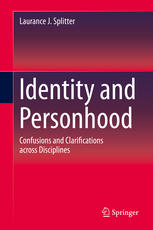

Most ebook files are in PDF format, so you can easily read them using various software such as Foxit Reader or directly on the Google Chrome browser.
Some ebook files are released by publishers in other formats such as .awz, .mobi, .epub, .fb2, etc. You may need to install specific software to read these formats on mobile/PC, such as Calibre.
Please read the tutorial at this link: https://ebookbell.com/faq
We offer FREE conversion to the popular formats you request; however, this may take some time. Therefore, right after payment, please email us, and we will try to provide the service as quickly as possible.
For some exceptional file formats or broken links (if any), please refrain from opening any disputes. Instead, email us first, and we will try to assist within a maximum of 6 hours.
EbookBell Team

4.1
10 reviewsThis book approaches the concept of identity from both logical-linguistic and socio-cultural perspectives, and explores its implications for our understanding of who or what we persons really are. In the process, it bridges disciplines that often remain disconnected - most notably analytic philosophy and the social sciences - and offers a novel critique of citizenship and moral education, "identity politics", and other contemporary domains of inquiry. Although the book has a multi-disciplinary focus, it is philosophical in its overall orientation (but accessible to readers from outside philosophy) and educational in its mission (but of interest to readers who are not formally educators). Chapters 2-5 discuss the philosophical and (where appropriate) scientific dimensions of identity, chapters 6-7 explore its socio-cultural dimensions and chapter 8 examines its educational dimensions and implications. The book will be of particular interest to those researching or teaching civics, citizenship education and moral education, as well as those involved in cultural, political and religious studies in a broader sense. It will also appeal to anyone who finds him- or herself wondering about the state of the world in the Twenty-First Century, and who suspects that rethinking what it means to be a person in that world might not be a bad idea.